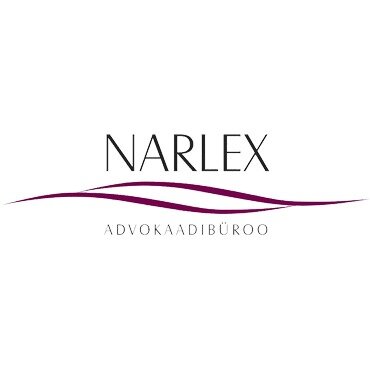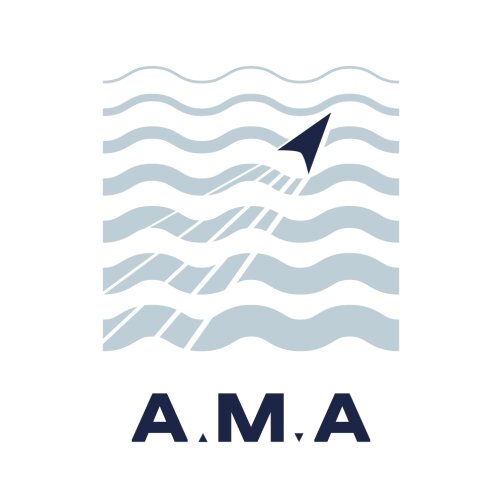Best Communications & Media Law Lawyers in Tallinn
Share your needs with us, get contacted by law firms.
Free. Takes 2 min.
List of the best lawyers in Tallinn, Estonia
About Communications & Media Law in Tallinn, Estonia
Tallinn, the capital city of Estonia, has a robust legal framework governing communications and media. Communications & Media Law in Tallinn, Estonia pertains to the regulations and guidelines that govern various aspects of the media industry, including traditional media outlets, digital platforms, telecommunications, broadcasting, and content creation. These laws aim to protect the rights of individuals and entities involved in the media sector, ensure fair competition, and safeguard freedom of speech and expression.
Why You May Need a Lawyer
There are several situations where seeking legal assistance in Communications & Media Law may be necessary. Some common scenarios include:
- Defamation or libel cases: If you have been falsely accused of defaming someone or if someone has published false information about you or your business, a lawyer can help protect your rights and reputation.
- Copyright infringement: If someone has unlawfully used your intellectual property or if you have been accused of infringing copyright laws while creating or distributing content, legal guidance can be invaluable.
- Content licensing and distribution: If you are involved in media production or content distribution, a lawyer can provide advice on licensing agreements, rights clearance, and legal compliance.
- Privacy and data protection: If your privacy has been violated or if you have concerns about the collection, storage, or use of your personal information by media organizations, a lawyer can help you navigate the relevant laws.
- Contractual disputes: If you are engaged in contracts or agreements with media companies, advertisers, or content creators, a lawyer can assist in resolving disputes, ensuring compliance, and protecting your interests.
Local Laws Overview
In Tallinn, Estonia, several key aspects of local laws are particularly relevant to Communications & Media Law:
- Constitutional protection: The Estonian constitution guarantees the freedom of speech and expression, providing a foundation for media-related matters.
- Media Services Act: This legislation covers topics such as the establishment and operation of media services, granting broadcasting licenses, and regulating content.
- Copyright Act: The Copyright Act outlines the protection of intellectual property, including rights related to literary, artistic, and audiovisual works.
- Personal Data Protection Act: This law establishes rules for the processing and protection of personal data, ensuring privacy rights are respected within the media sector.
- Estonian Media Council: The Estonian Media Council is a regulatory authority responsible for overseeing media-related activities and ensuring compliance with relevant laws and regulations.
Frequently Asked Questions
1. Can I publish someone's private information without their consent?
No, publishing someone's private information without their consent may violate their privacy rights. It is advisable to seek legal advice to understand the specific circumstances and applicable laws, such as the Personal Data Protection Act, before publishing any private information.
2. What constitutes defamation in Communications & Media Law?
In Tallinn, Estonia, defamation refers to making false statements that harm someone's reputation. It can be in written (libel) or spoken (slander) form. However, opinions or statements based on true facts, expressed responsibly and in the public interest, are generally protected from defamation claims.
3. How can I protect my intellectual property in the media industry?
To protect your intellectual property in the media industry, it is crucial to register copyrights for your creative works. Additionally, you can use licensing agreements and contractual arrangements to ensure your intellectual property is used appropriately and that you receive fair compensation for its use.
4. What are the rules regarding media content aimed at children?
Media content aimed at children must comply with specific regulations and guidelines to ensure it is appropriate and safe. These rules cover various aspects, such as age classification, advertising restrictions, and protection of children's privacy rights. It is advisable to consult with a lawyer skilled in Communications & Media Law to ensure compliance.
5. What legal recourse do I have if my personal data is mishandled by a media organization?
If your personal data is mishandled by a media organization, you may have legal recourse under the Personal Data Protection Act. It is recommended to seek legal advice to assess the situation, understand your rights, and explore potential remedies such as filing a complaint with the Estonian Data Protection Inspectorate or pursuing civil litigation.
Additional Resources
For further resources and assistance with Communications & Media Law in Tallinn, Estonia, consider consulting the following:
- Estonian Bar Association: The Estonian Bar Association can provide a list of qualified lawyers specializing in Communications & Media Law.
- Estonian Press Council: The Estonian Press Council handles complaints related to press ethics and can offer guidance on media-related issues.
- Eesti Meediaettevõtete Liit (Estonian Association of Media Enterprises): This organization represents media businesses in Estonia and may provide industry-specific advice and resources.
- Estonian Data Protection Inspectorate: The Inspectorate oversees data protection matters and can assist with concerns related to personal data handling by media organizations.
Next Steps
If you require legal assistance in Communications & Media Law in Tallinn, Estonia, follow these steps:
- Gather all relevant documents and information related to your case or concern. Write down any specific questions or issues you would like to discuss with a lawyer.
- Research and shortlist reputable law firms or lawyers with experience in Communications & Media Law. Consider their expertise, track record, and client reviews.
- Contact your chosen lawyer or law firm to schedule an initial consultation. During the consultation, present your case or concerns, ask any questions you have, and assess whether the lawyer is a good fit for your needs.
- If you decide to proceed, discuss the fees, the scope of services, and any necessary documentation. Ensure you have a clear understanding of the legal process and the expected timeline.
- Closely collaborate with your lawyer, providing all requested information and cooperating to the best of your abilities. Follow their guidance and instructions throughout the legal proceedings.
Lawzana helps you find the best lawyers and law firms in Tallinn through a curated and pre-screened list of qualified legal professionals. Our platform offers rankings and detailed profiles of attorneys and law firms, allowing you to compare based on practice areas, including Communications & Media Law, experience, and client feedback.
Each profile includes a description of the firm's areas of practice, client reviews, team members and partners, year of establishment, spoken languages, office locations, contact information, social media presence, and any published articles or resources. Most firms on our platform speak English and are experienced in both local and international legal matters.
Get a quote from top-rated law firms in Tallinn, Estonia — quickly, securely, and without unnecessary hassle.
Disclaimer:
The information provided on this page is for general informational purposes only and does not constitute legal advice. While we strive to ensure the accuracy and relevance of the content, legal information may change over time, and interpretations of the law can vary. You should always consult with a qualified legal professional for advice specific to your situation.
We disclaim all liability for actions taken or not taken based on the content of this page. If you believe any information is incorrect or outdated, please contact us, and we will review and update it where appropriate.
















